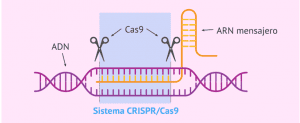HASSE, Marcos Roberto [1]
HASSE, Marcos Roberto – Alimony: recent changes in the CPC Multidisciplinary Core scientific journal of knowledge. Year 1. Vol. 9. pp. 84-87, October/November 2016. ISSN. 2448-0959
SUMMARY
This year, the Brazil brand its trajectory within political, economic and legal framework. On 18 March 2016, entered into force the new CPC-code of Civil procedure, bringing several modifications and updates in the conduct of proceedings. The relevance on the subject of child support makes the study interesting, especially given the fact that the rules have become more tax collection. In this sense, expressed in a simple and illustrated the understanding in this regard, in order to provide knowledge to interested parties.
Keywords: Civil Procedure Code; Alimony; Recovery;
1. INTRODUCTION
The purpose of this document is to clarify the update on rules of firmer charges those responsible for paying alimony. It allows the reader a synthesized understanding of the matter quickly and, therefore, the intention is to share with other interested this form of knowledge.
2. DEVELOPMENT
Unsurprisingly the relatives to each other, there is a duty of support to family survival. These foods in the parameters of the law are due between parents and children, grandparents, spouses, former spouses, companions, brothers, uncles, nephews, etc.; that is, all those relatives are conserved in the concept of family. These foods include not only the need to eat, but all maintenance of one who needs (clothing, health, education, leisure, etc.).
With recent change in civil procedural law (the one that indicates how to seek the right of the creditor), which went into effect on March 18 of the current, the rules for the borrower, called alimony, were stiffened, making tougher penalties for those who do not fulfill the duty. Considered independent right or wrong decision that determined or modified, the fact is that now, once established this duty, whether provisional or definitive, the consequences are more serious.
The previous law already provided for the imprisonment for default of the last three installments before the filing of the action, however, pareavam questions about the arrangements for compliance with penalty (closed, semi-open, open).
With the new law, the regime adopted is now closed, and the prisoner be just separated from other prisoners. That means no longer exists the possibility of jail time at home, or retiring to the prison only at night. Important to remember that the fulfilment of the penalty does not exempt the borrower payments from the period as well, to avoid the prison will be obliged to pay the last three installments before the filing and all those that win on the same course.
Squeezing even more, there are express forecast of the debtor be protested by default, in order to, being entered in the negativadores, organs become almost impossible the obtaining of credit in the market, be of any nature, colloquially known as “being with the bad name”.
The accuracy of the new law also stiffened the rules for the food, I mean, for those previous three installments of the date of the filing of the action. I mean, for example, the debtor was limited to pay three installments before mentioned, but as his wife, sons, uncles, not filed the action in time, remained a credit for two years of food. In this example, the debtor does not possess wealth, soon, was difficult to apply the attachment about non-existent heritage.
From now on, the situation has changed, the debtor may have up to 50% of their net gains seized to pay food credit. So, if the debtor receives salary, might be beyond the discount on sheet of monthly installments, an additional rebate in respect of the parcels due.
It’s good to remember that even before the entry of the law before, the Fed does not need to wait three months to get their right, because in the first month of the law allows you to delay the pursuit of judicial accountability. The warning also applies to the borrower, who in addition to suffer the penalties mentioned above, is still subject to being prosecuted for the crime of abandonment practice material, as well as possible compensation for moral damage in function of this abandonment.
One way or another, without entering into the merit of who can or cannot pay, because this decision is up to the judgment itself, the fact is that the rules were hardened, and the borrower Beware before thinking about food budget default.
3. FINAL CONSIDERATIONS
Basic premises of survival pack this theme, because on the one hand, there is the less you need clothing, health, education and leisure to develop themselves and feel welcomed in its primary requirements. On the other hand, follows the responsible, though obliged to provide such assistance, often unable to fulfill such obligation transfers powers to their parents. The fact is that inherent to the condition, needs to occur the fulfillment of human dignity and with the rules stiffened, resurfaces in the eyes of society hope that integrates and depends on these for their survival.
4. REFERENCES
WAMBIER. T. et al., coordinators. Brief comments on the new code of Civil procedure. 2nd draw. São Paulo: Editora Revista dos tribunals, 2015.
[1] Owner of HASSE advocacy and consulting, graduated in law from FURB-Regional University of Blumenau (SC) in 1995. Post-graduate in tax law and Tax Procedure (2002), the University of the UNIVILLE Joinville/SC. Sum in your curriculum, several participations in national and international conferences, to develop your knowledge and help the interest of their customers. Possess more than 20 years of experience in matters of Civil law, tax law, Environmental, labor and social security, where he served as professor at UNERJ-Regional University of Jaraguá do Sul (SC), Catholic today.


